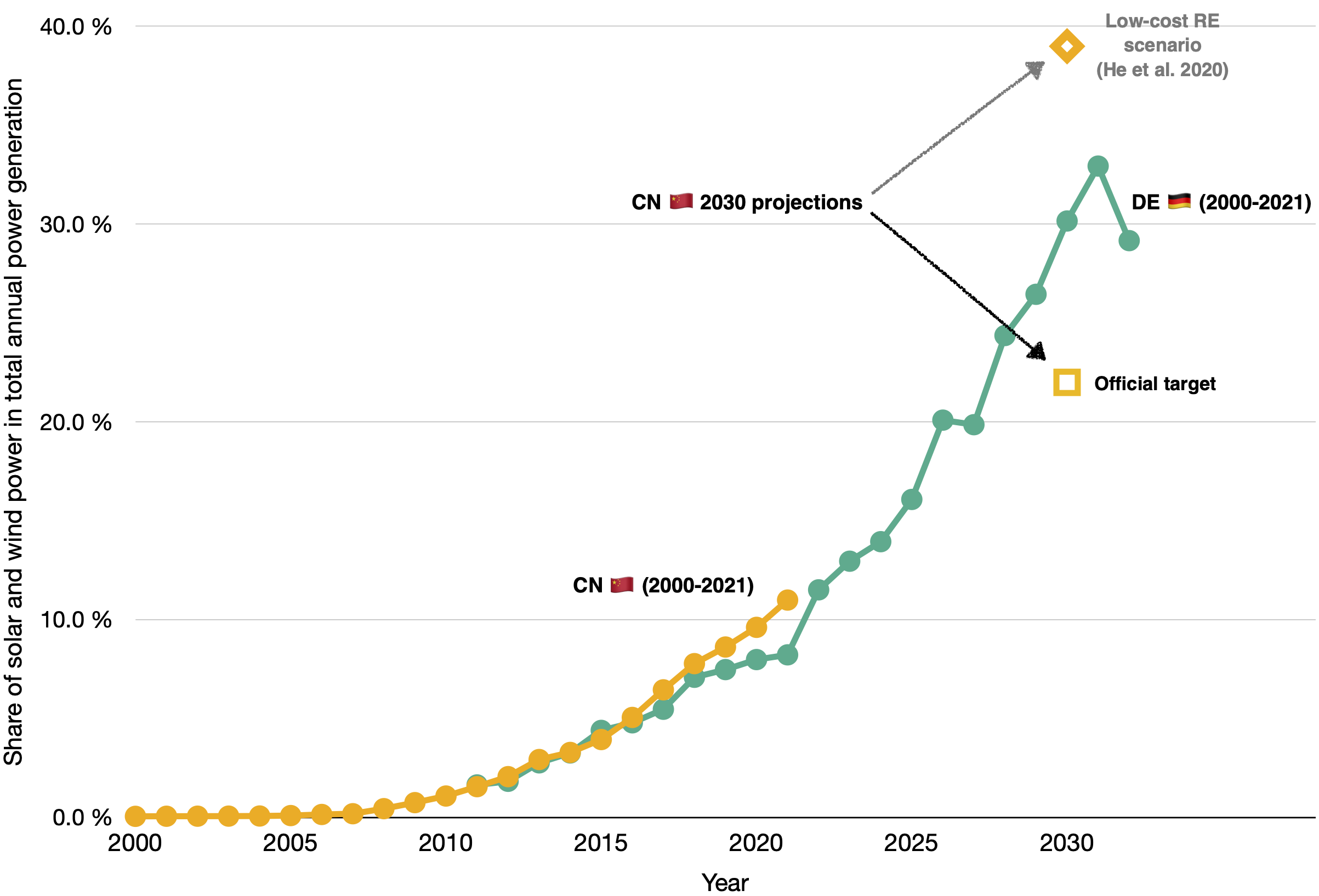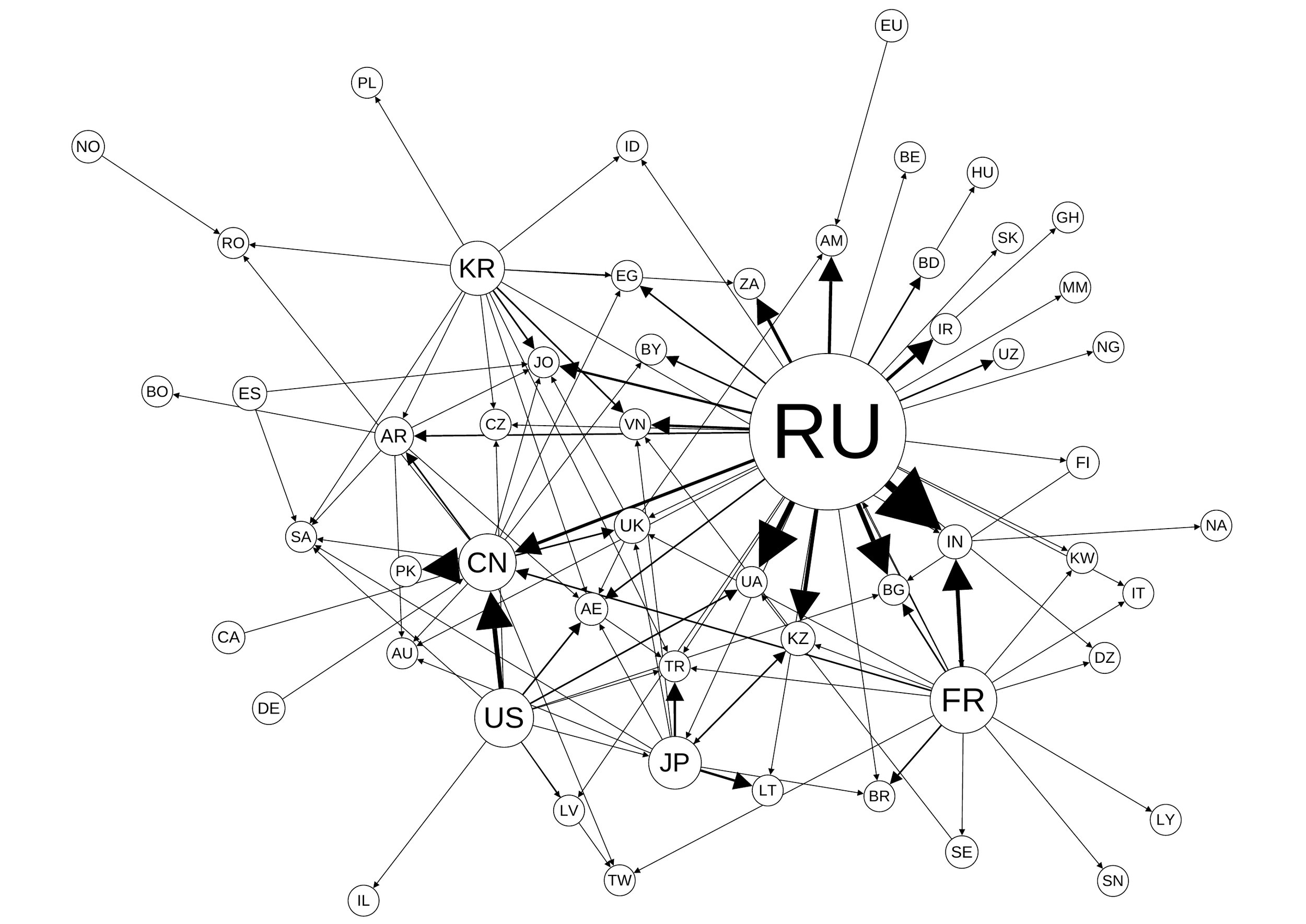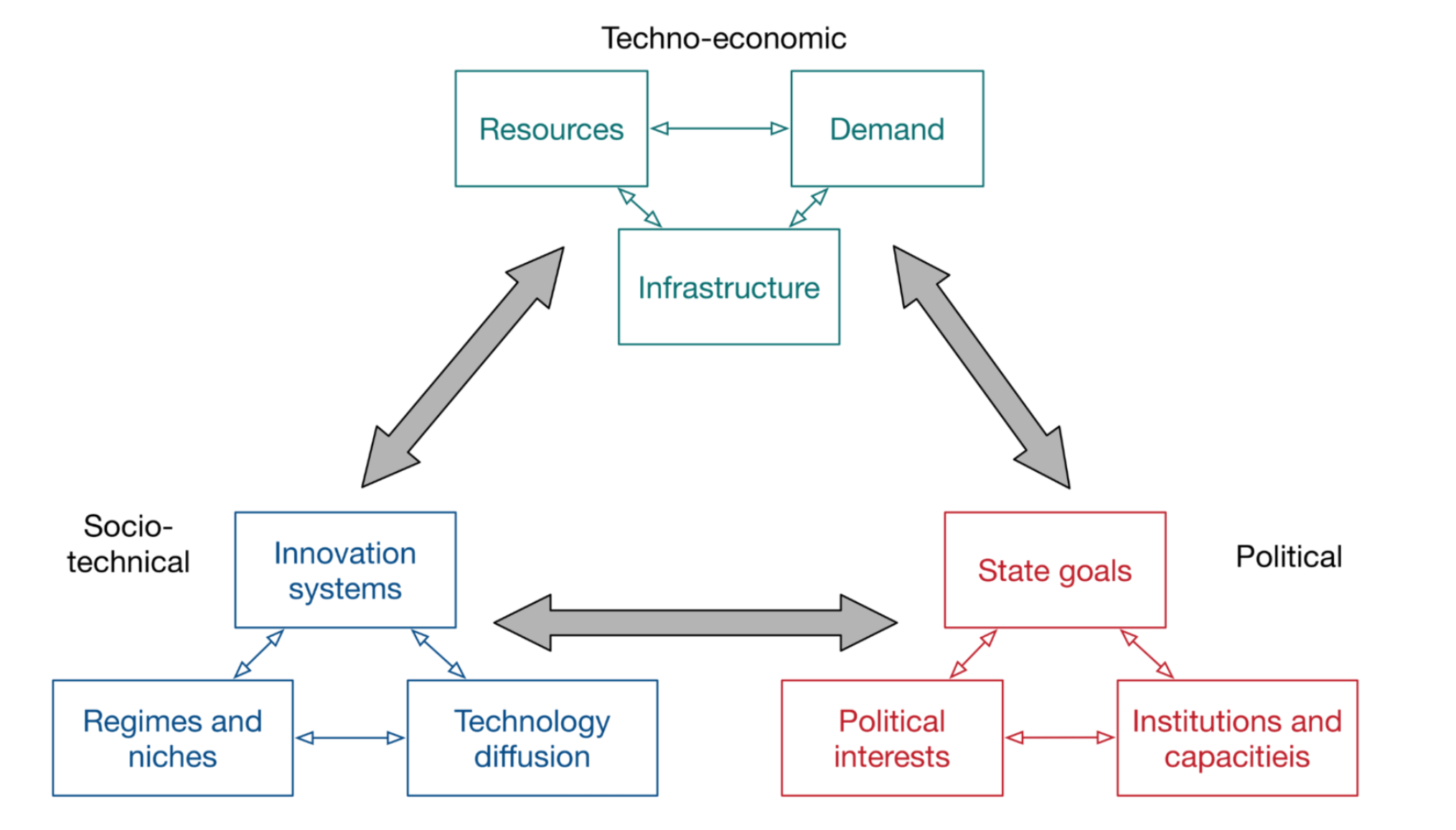
PhD or post-doc position at Chalmers University
POLET is recruiting either a PhD student or a Postdoctoral researcher to examine the interplay between energy policies. Come join us! Applications should be received by April 7th, 2024.

Accelerating Ambitious and Just Coal Phase-outs online event
Lola Nacke will be presenting her work on financial compensation for coal phase-out at a CINTRAN Coal + Regions in transitions event on Wednesday, 7 February 2024 at 11:00 – 12:00 CET — register here!

Renewables growth in China and normalising normalisation
Renewable power capacity additions in China often attract widespread attention for their sheer magnitude. But how useful are these raw numbers without considering the size of the country? Using installed capacity per capita and renewables’ share of national electricity production as illustrative examples, I make a case for normalising data when making inter-country comparisons. In addition to offering richer insights into the pace and extent of energy transitions, such analyses allow for a more nuanced view of change, help contextualise progress and set more realistic expectations.

Feasibility of decarbonising electricity in G7 by 2035
G7 countries and the European Union have committed to decarbonise electricity by 2035. Is this target feasible? We show that it would require expanding low-carbon electricity 4.5 times faster and reducing fossil-based electricity 2 times faster than in 2015-2020 between 2020 and 2035. Unfortunately in 2021, most G7 countries increased the use of fossils and slowed down the growth of low-carbon electricity, making it even more challenging to achieve the target by 2035.

Two post-doc positions at Chalmers University
Two post-doc positions on the dynamics of energy transitions at Chalmers University. One focuses on the economics and speed of energy transitions and the other on the diffusion and growth of technologies and infrastructures. Selection ongoing, we start reviewing applications August 29th, 2022.

Nuclear power worldwide is also affected by Russia’s war in Ukraine
Russia’s invasion of Ukraine has massively disrupted global and European energy markets. While most of the attention has focused on the EU’s dependence on Russian gas and oil supplies, Russia is also at the center of global nuclear power. The current crisis could lead to shifts in supplies of nuclear technologies which reverberate for decades to come.

Effects of Russia’s war on European coal phase-out
As the EU wrestles when it can implement its embargo on Russian coal, a larger question looms over the future of coal in Europe. Does the war in Ukraine and concerns over natural gas risk delaying existing coal phase-out plans? Here we investigate this question by examining the energy security situation in different countries as well as the statements EU countries have made about their coal phase-out plans.

Lessons for phasing out coal
At COP26, 46 countries signed the ‘Global Coal to Clean Power Transition Statement’, ‘consigning coal to history’, including significant coal consumers such as Indonesia and Vietnam. Translating the experience of just transition policies from developed countries to emerging and developing economies is a crucial policy challenge to help implement these commitments. We developed a diagnostic tool to help researchers and policy makers most effectively translate these lessons.

How fast can Europe get off Russian gas?
Last week, the EU announced a target to be free of Russian fossil fuels by 2030. As European countries face this goal, two questions arise: (1) Is it sufficiently ambitious and realistic? and (2) Will this support or compromise our climate objectives?

Feasibility of Germany’s newly proposed RES targets
The new German government aims to strengthen their RES targets to supply 80% of electricity by 2030. How challenging are they? What level of efforts is required to achieve them? I apply growth models and compare with other leading countries in developing renewables to discuss the feasibility of Germany achieving these targets.

POLET workshop on fossil fuel decline
POLET researchers and partners invite you to an online workshop to share and discuss the findings of the Contractions project identifying historic precedents and current pledges for fossil fuel decline.

Can we predict the future growth of renewables based on past trends?
The IEA’s latest World Energy Outlook refreshes sophisticated scenarios that project the future growth of solar PV. Here, I investigate if we can match their predictions by fitting an S-curve to historical growth data.

Global growth of wind needs to be double as fast as recent growth in Germany to meet IEA’s Net Zero by 2050
The IEA Net Zero 2050 Roadmap envisions adding 310 GW of onshore wind in 2030. This is the same as was added globally in the last five years. Has such a rate been ever achieved in any country?

PhD position at Lund University
New PhD position on feasible energy transitions in Sweden and Northern Europe based at Lund University. Apply by June 6th, 2021

PhD position at Chalmers University of Technology
New PhD position analyzing climate targets and energy choices in different countries based at Chalmers University. Apply by May 21st.

Can UK eliminate emissions from residential heating by deploying heat pumps as fast as Finland?
Replacing gas heating with heat pumps would reduce 90% of UK’s direct greenhouse gas emissions from the residential sector. Here we look at whether such a replacement would be feasible if the UK would adopt heat pumps as fast as one of the leaders in this technology, Finland.

Towards a post-oil Alberta
Alberta has the third largest oil reserves in the world, after Saudi Arabia and Venezuela. In early 2015, profits from the oil sands made up about 5% of Canada’s GDP Canada’s highest incomes are found in the heart of oil-sand-country. However, Alberta’s real GDP contracted over 3.5% each in the years 2015 and 2016 due to the fall of oil prices. What does this experience tell us about contractions expected as a result of decarbonisation?

Early history of wind power in Germany and the UK
Before its fast expansion in the 2000s, wind power in the UK developed slower than in Germany. Why did this lag occur? While many early studies argued that it was due to a wrong selection of policy instruments, more careful look suggest that other factors may have played a role.

Norwegian-funded research focuses on the dark side of energy transitions
Energy transitions involve not only expanding wind, solar and other low-carbon technologies but also phasing out existing carbon-intensive sources such as coal. Introducing new energy sources is often easier to advocate as it involves no job or revenue losses. However, phasing out existing energy technologies is harder both economically and politically, though it is precisely what eventually reduces greenhouse gas emissions. In a new project, we focus at this unexplored dark side of energy transitions.

Integrating techno-economic, socio-technical and political perspectives on energy transitions
A newly published paper proposes a meta-theoretical framework integrating techno-economic, socio-technical and political perspectives on national energy transitions. The use of the framework is illustrated by a comparative analysis of energy transitions in Germany and Japan.